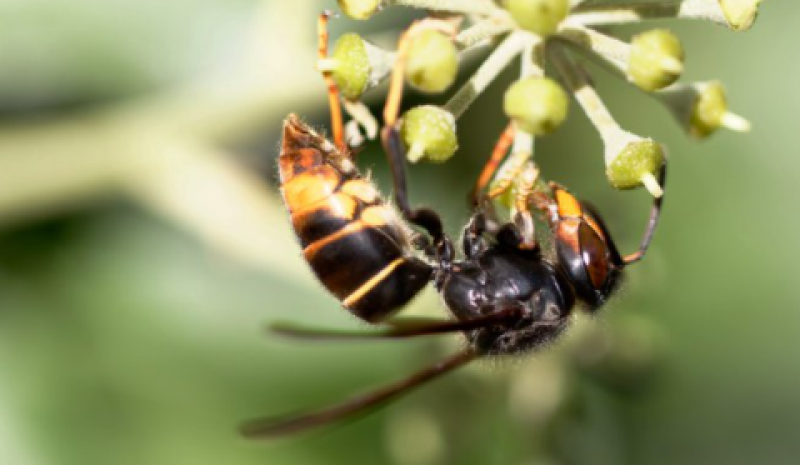article_detail
Date Published: 27/10/2021
ARCHIVED - The rise of the killer wasp in Spain
Scientists believe the deadly wasp will invade all of Spain by 2029

Ecologists in Spain have warned of a new deadly threat to both animals and humans: the Asian hornet, more commonly known as the killer wasp. This invasive species first arrived in Spain 11 years ago, and while many communities have claimed to have eradicated the pest, experts fear that it is spreading across the country at an unstoppable rate.
It is aptly named, as seven people in Spain have been killed by the sting of the wasp since 2019 alone, all of whom were attacked after venturing too close to the territorial creature’s nest. It is estimated that this species is responsible for 90% of all wasp stings and around 3% of the population suffers from general allergic reactions to the venom, which makes it deadly. The annual mortality rate is 0.08 people per one million inhabitants or three to four people each year.
According to avispasiatica.org, a portal which monitors its presence in this country, the killer wasp will have taken over all of Spain by 2029. Only the Canary Islands would remain unscathed.
The hornet also poses a serious threat to bees, a species which is already in decline in this country thanks to an abundance of pesticides and climate change. According to the Centre for Ecological Research and Forestry Applications (CREAF), killer wasps are capable of destroying entire hives in one fell swoop, with one able to obliterate up to 50 bees per day. The unsavoury creatures dismember the bees and feed the pieces to their larvae before devouring the honey.
The Asian hornet is currently expanding throughout Spain at a rate of 100 kilometres per year, travelling from north to south. While there are several investigations underway aimed at eliminating the dangerous species, mostly based on biological control, no definitive solution has yet been found.
Last year, the Balearic Islands announced that the region was the first in Europe to eradicate the killer wasp, but the experts from avispasiatica.org believe they may have spoken too soon. The monitoring forum recommended caution, because many communities have previously made the mistake of believing the wasp population was under control only for it to rebound suddenly with dire consequences.
Image: Science for Environment Policy
Loading
Sign up for the Spanish News Today Editors Roundup Weekly Bulletin and get an email with all the week’s news straight to your inbox
Special offer: Subscribe now for 25% off (36.95 euros for 48 Bulletins)
OR
you can sign up to our FREE weekly roundup!
Read some of our recent bulletins:
Discount Special Offer subscription:
36.95€ for 48 Editor’s Weekly News Roundup bulletins!
Please CLICK THE BUTTON to subscribe.
(List price 3 months 12 Bulletins)
Read more stories from around Spain:
Contact Spanish News Today: Editorial 966 260 896 /
Office 968 018 268




























